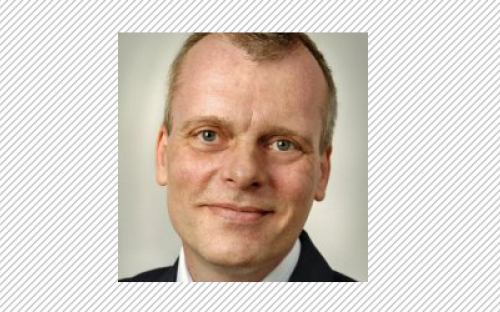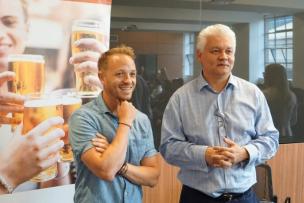Georg Vielmetter, who is based in Berlin, lets BusinessBecause know what it’s really like to work for such a high profile consultancy. Having worked with the company since 1999, he tells us that, ‘I could talk about the company forever, because I like it so much!’
What's your role at Hay Group and how long have you been there?
I’m currently a member of Hay Group’s European Leadership Team, responsible for the leadership and talent practice, and the coordinator for all consulting practices in Europe.
I’ve worked at Hay Group for thirteen years now but it was never really my plan to stay for that long! My background is in sociology, and I have a Ph.D in philosophy, so my original career track was in academia. However, once I started work at Hay Group, I realised that I found it really rewarding and interesting, and that consulting offered lots of different opportunities.
Do you hire any MBAs? What sort of roles might they be suitable for?
Yes, MBAs tend to be well suited to Hay Group’s consulting practice. We provide on boarding training programmes for new recruits, a clearly defined career path, and development programmes.
We employ people from a variety of academic backgrounds. Some people have degrees in engineering or economics, whilst others have studied psychology or philosophy. At Hay Group, you get to work alongside all sorts of different people.
What advice do you have for MBAs hoping to get a job at your company?
If you’re an MBA, you will have learnt a lot based on case studies, and will have gained an understanding about how businesses function. When we hire people, we assume they know their stuff!
However, as we presuppose that applicants will have a strong academic background, good degrees are not a strong distinguisher. The best candidates are emotionally intelligent, able to work collaboratively, and can see the bigger picture. It’s also about being able to act intuitively and proactively in the workplace – you have to think outside the box.
Whilst obviously you have to be intelligent to get a job here, and cognitive skills are important, we also look for social competency in our hiring process.
What are the most exciting things about a career with Hay Group?
There are many different career opportunities in Hay Group, as we have such a varied portfolio of clients in all industries as well as the public sector. When you start a training programme with us, you get to learn all about our different practice areas (reward, leadership and talent and building effective organisations) and markets. After a while, you follow your personal strengths and interests, and have the opportunity to go much deeper into a certain area to become an expert.
Our culture is unique, and as long as you deliver to the high standard we expect of our employees you have the freedom to act as you see fit. As a result, the service we provide our clients is highly individualised and varied.
The fact that I work with people from so many different academic backgrounds has definitely broadened my perspective. Whilst obviously the company is profit-orientated, it is also important for us to nurture a culture of respect – colleagues don’t compete against each other, because working collaboratively yields far better results.
The overall atmosphere is extremely supportive because of this. The fact that there are so many helpful and inspiring colleagues is one of the reasons why I’ve been at Hay Group for such a long time!
What’s it like to work for such a global company?
It’s really exciting. We have offices in 53 different countries, and work with many of the biggest organisations in the world. This means employees benefit from international opportunities, and get to work on cross border projects.
How do you fulfil your promise of making change happen?
We’re not a strategy company. Instead, we decode and realise the strategies companies already have, as implementing them is often the difficult part.
We focus on organisations’ intangible capital – especially areas like human capital and organizational and relational capital. We support clients by helping them to build a top team, to define and clarify the operating model and the implications for structures, processes, and people. We assist them in finding, selecting and organising the right people for ‘mission critical’ roles, which is what makes strategies actually happen.
The whole process is integrated and holistic. We recognise that the core of any organisation is the people who work for it.
What kind of training do you offer?
We offer a variety of different schemes, some of which are organised by country. Hay Group also runs a Europe-wide scheme, which brings people from different countries together.
There are great opportunities for on-the-job training. For each area of the company, there are modular qualifications you can take, graded 1 to 4, which are earned through a mix of on-site, online, and off-site work. This allows us to define clear learning maps and career paths.
By centralising these schemes, we can ensure a calibrated training and accreditation programme.
Could you describe your ideal job applicant?
It’s really difficult to describe an ideal job applicant, because those with the very best careers tend to be pretty unique!
Applicants must be really interested in what we do, and believe that organisations can become more successful through their human and organizational capital. The best applicants are intellectually open and curious.
However, it’s no good having the IQ of a genius if you’re not sufficiently emotionally intelligent. Social skills, as I mentioned earlier, are absolutely vital, whilst academic brilliance is a prerequisite.
Read more about MBA jobs and recruiters here
RECAPTHA :
c9
86
ad
7f







